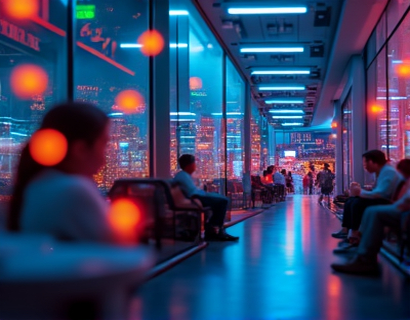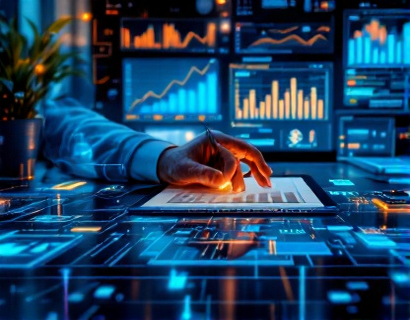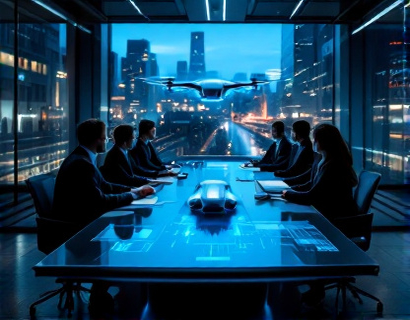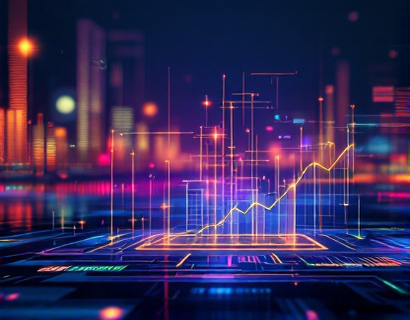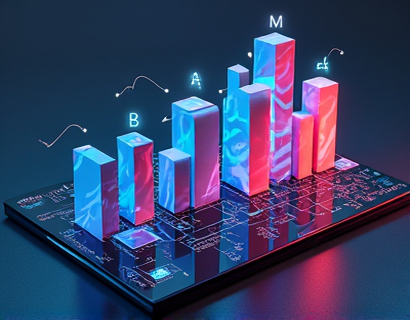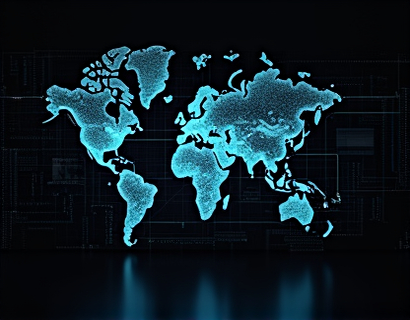The Synergy of Crypto and AI: Transforming Digital Engagement
The intersection of cryptocurrency and artificial intelligence (AI) is giving rise to a new era of digital engagement, one that promises to revolutionize how we interact with technology and each other. This convergence is not just a technological advancement but a paradigm shift that is redefining the tech ecosystem. As we delve into this topic, it's essential to understand the foundational elements of both crypto and AI, and how their synergy is driving growth and innovation.
Understanding Cryptocurrency and AI
Cryptocurrency, often referred to as digital or virtual currency, operates on a decentralized network known as blockchain. This technology ensures transparency, security, and immutability in transactions, eliminating the need for intermediaries such as banks. The most well-known cryptocurrency, Bitcoin, was launched in 2009, but the concept has since expanded to include thousands of altcoins, each with unique features and use cases.
Artificial intelligence, on the other hand, involves the simulation of human intelligence processes by machines, particularly computer systems. These processes include learning (the acquisition of information and rules for using it), reasoning (using rules to reach approximate or definite conclusions), and self-correction. AI technologies such as machine learning, natural language processing, and computer vision are rapidly advancing, finding applications in various sectors from healthcare to finance.
The Emergence of Crypto and AI Synergy
The synergy between crypto and AI begins at the foundational level. Blockchain technology, the backbone of cryptocurrencies, provides a secure and transparent platform for AI applications to operate. Smart contracts, self-executing contracts with the terms directly written into code, can automate and enforce AI-driven processes, ensuring trust and efficiency. This integration allows for the creation of decentralized applications (dApps) that leverage AI to provide enhanced services without central control.
One of the key areas where crypto and AI intersect is in data management and privacy. AI algorithms require vast amounts of data to learn and improve. However, the centralized storage of this data poses significant privacy and security risks. Blockchain technology offers a decentralized solution, allowing data to be stored and shared securely and transparently. This ensures that users maintain control over their data while AI systems can access it as needed, fostering a more trustworthy digital environment.
Enhanced User Experiences through AI-Driven Crypto Solutions
The combination of crypto and AI is not just about technological innovation; it's about creating superior user experiences. AI can analyze user behavior and preferences to personalize crypto services, making them more intuitive and user-friendly. For instance, AI-powered chatbots can provide 24/7 customer support, answering queries and guiding users through complex crypto transactions. This level of personalization and support is a significant step forward in user engagement.
Another area where AI enhances crypto experiences is in trading and investment. AI algorithms can analyze market data, identify trends, and make predictions with a level of accuracy that surpasses human capabilities. This leads to more informed decision-making and potentially higher returns for investors. Additionally, AI can automate trading processes, executing trades at optimal times and managing portfolios with minimal human intervention.
Decentralized Finance (DeFi) and AI
Decentralized Finance (DeFi) is a revolutionary financial system built on blockchain technology, offering a range of financial services such as lending, borrowing, and trading without traditional financial intermediaries. AI plays a crucial role in enhancing DeFi platforms by improving risk management, fraud detection, and algorithmic trading. AI models can assess creditworthiness more accurately, reducing the risk of default in lending platforms. Similarly, AI-driven fraud detection systems can identify and prevent malicious activities in real-time, ensuring the integrity of DeFi transactions.
The integration of AI in DeFi also extends to yield optimization. AI algorithms can analyze various DeFi protocols and recommend the most profitable strategies for users, maximizing their returns. This level of automation and optimization is a game-changer for users who may not have the expertise to navigate complex financial instruments manually.
Supply Chain and Logistics: A Crypto and AI Collaboration
Beyond finance, the synergy of crypto and AI is transforming supply chain and logistics. Blockchain provides a transparent and immutable ledger for tracking goods from production to delivery, ensuring authenticity and reducing fraud. AI, with its predictive analytics capabilities, can optimize supply chain operations by forecasting demand, managing inventory, and streamlining transportation routes. This combination not only enhances efficiency but also reduces costs and environmental impact.
Smart contracts can automate payment processes based on predefined conditions, ensuring that all parties in the supply chain are compensated fairly and promptly. For example, when a shipment reaches a certain checkpoint, the smart contract can trigger a payment to the transporter, eliminating the need for manual verification and reducing delays. This level of automation and transparency is crucial for global supply chains, where coordination across multiple parties is essential.
Healthcare: A Life-Changing Synergy
The healthcare sector is another area where the convergence of crypto and AI is making a significant impact. AI-driven diagnostic tools can analyze medical data with high precision, aiding doctors in making accurate diagnoses. Blockchain can secure patient data, ensuring privacy and compliance with regulations such as GDPR. Patients can control who accesses their medical records, and healthcare providers can share information seamlessly, improving the quality of care.
Crypto assets, such as non-fungible tokens (NFTs), are being used to represent ownership of medical data, giving patients more control over their health information. This not only enhances privacy but also creates new economic opportunities for patients who can monetize their data while ensuring it is used ethically and transparently. AI-powered telemedicine platforms can provide remote consultations, making healthcare more accessible, especially in underserved regions.
Challenges and Considerations
Despite the numerous benefits, the synergy of crypto and AI is not without challenges. Regulatory uncertainty remains a significant hurdle, as governments worldwide are still grappling with how to regulate these emerging technologies. Ensuring compliance while fostering innovation is a delicate balance that requires collaboration between tech companies, regulators, and policymakers.
Another challenge is the technical complexity involved in integrating crypto and AI systems. Developers need to possess a deep understanding of both domains to create robust and secure applications. Additionally, there is a need for standardization to ensure interoperability between different crypto and AI platforms. This is crucial for widespread adoption and the creation of a cohesive tech ecosystem.
Future Prospects
The future of crypto and AI synergy is bright, with numerous potential applications yet to be explored. As technology continues to evolve, we can expect to see more sophisticated AI models that can operate on decentralized networks, further enhancing privacy and security. The rise of Web3, a decentralized internet powered by blockchain, will provide a fertile ground for AI-driven services to flourish.
Moreover, the integration of AI with other emerging technologies such as the Internet of Things (IoT) and 5G networks will create a more interconnected and intelligent world. Smart cities, for instance, can leverage AI to optimize resource usage and improve public services, while IoT devices can generate valuable data that AI can analyze to drive innovation.
In conclusion, the synergy between crypto and AI is not just a technological trend but a transformative force that is reshaping the digital landscape. By combining the security and transparency of blockchain with the intelligence and efficiency of AI, we are witnessing the birth of a new era of digital engagement. This synergy is driving growth, innovation, and enhanced user experiences, paving the way for a more connected and intelligent future.








